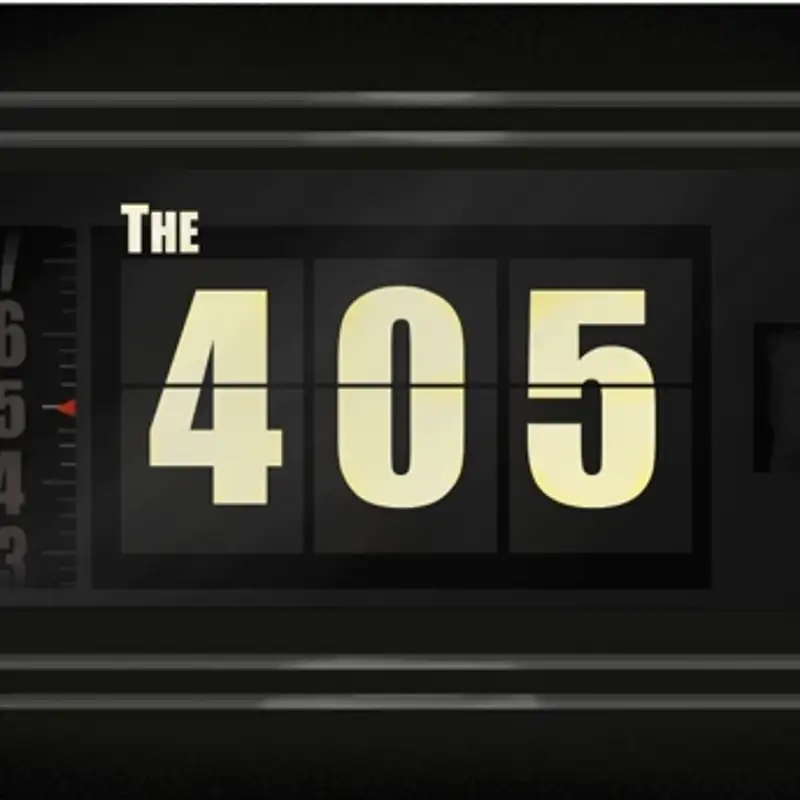
The 405 Aired Nov 3rd, 2025
I wanna again welcome you to The 405 Coffee Break, guys. New week. Get you a cup of coffee, glass iced tea, a bottle of water. Let's see what's happening. Spring wheat, not doing much, sad to say, $5.18 a bushel. 550lb steer calf, a range $4.38 to $4.44. $4.38 to $4.44, they are tapering off a bit, but that's a great price. Butcher hog in Iowa, 67¢ a pound. And a lamb that's fat, weighing a 100 pounds, they'll fetch you $2.13 a pound. But, guys, there's more, much more.
OK Solberg:Okay. It's Monday, and you know what that means. Jay and Joe's Motor Monday, the day we honor horsepower one Monday at a time.
OK Solberg:Well, I have an interesting one that few people are aware of at this point in time. Now, it isn't a Ford, it isn't a Chevy, it's not even a Mopar or from the Chrysler Corporation. But but guys, it deals with and affected each and every one of them. Gather around the Cabin Fire Kitties, and let me tell you a true story.
OK Solberg:And the story is called the great molasses flood and how it helped shape automotive safety. On a cold January afternoon in 1919, Boston was shaken by one of the strangest disasters in American history, a wave of molasses that tore through the city's north end. What most people don't realize is that this sticky tragedy helped inspire the safety standard standards that protect us every time we get behind the wheel of our automobile. It began with the Purdy Distilling Company's huge storage tank, 50 feet tall. Uh-huh.
OK Solberg:50 feet tall, 90 feet wide, holding more than 2,000,000 gallons of molasses. The company used the syrup to make industrial alcohol. But when World War one ended, demand dried up. The tank, poorly built and never properly inspected, sat nearly full on a midwinter morning. Temperatures changing, cold hot, cold warm.
OK Solberg:At 12:30PM on January 15, the steel walls gave way, A dark 15 foot high wave of molasses raced through the streets. Listen, guys. At more than 35 miles an hour, it flattened buildings, crushed freight cars, and pushed an elevated train track off its supports. Twenty one people were sadly killed and more than a hundred and fifty injured. At first, the story made headlines for its sheer oddity.
OK Solberg:Reporters joked that you could smell sugar in the harbor for years, but engineers saw something deeper. A warning. Investigators found the tank's rivets were cheap, the steel too thin, and no one with real engineering credentials had ever approved the design. Public outrage forced the first large scale forensic engineering investigation in US history. Experts studied the wreckage, analyzed the metal, and traced exactly how stress and temperature changes caused the tank to burst.
OK Solberg:Their finding laid the groundwork for standardized design and inspection rules, rules that soon spread far beyond Boston. While the automobile industry exploded in the nineteen twenties, those same safety principles were applied to those cars built. Manufacturers began testing steel for fatigue, setting limits on pressure and stress and requiring certified engineers to sign off on new designs. The lessons from that failed molasses tank echoed through the early automotive factories in influencing how fuel tanks, frames, and later crash structures were built. In short, that bizarre flood helped turn guesswork, well, into science, transforming engineer from an art into a discipline of testing measurements and accountability.
OK Solberg:Today, there's just a small plaque in Boston's North End marking the site. But if you stand there on a warm day, local people still claim you can smell a hint of sweetness in the air, a reminder that one of the strangest disasters in history helped make modern machines, especially your automobile, safer, and the people who ride in them a whole lot safer. It's a reminder that wisdom, not speed, builds things that last. Like it says in Proverbs 24, by wisdom, a house is built, and through understanding, it is established. There you have it.
OK Solberg:So until next time, as you go out there, remember now, don't be bitter.